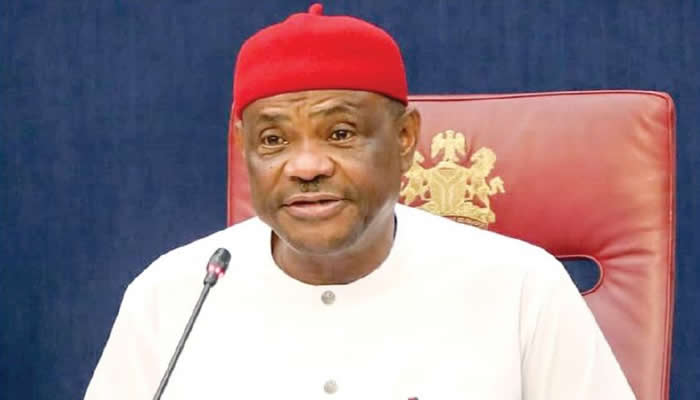
"No Excuse for a Decade of Absence" – Linc Edochie's Ex-Wife Slams Judy Austin's Former Husband, Obasi Emmanuel

In a fiery and emotional outburst that has reignited discussions on parental responsibility and family values, Yinka Theisen, the ex-wife of Nollywood actor Linc Edochie, has taken to social media to express her outrage over what she describes as an unacceptable and absurd situation: a father not seeing his children for over ten years. Her comment came in reaction to the ongoing saga involving Obasi Emmanuel, the estranged ex-husband of actress Judy Austin, who recently cried out to the public, pleading for help and claiming he hasn’t laid eyes on his children in a decade.
Yinka, whose online presence has grown increasingly bold and unfiltered over the past few months, did not hold back in condemning the situation. "What a shame! Ridiculous is when a father goes ten years without seeing his kids. There is no blame game that can explain this absurdity!!" she wrote on her Instagram page, tagging her post with hashtags like #deadbeatdads and #ludicrous. The statement quickly went viral, drawing widespread reactions from social media users and rekindling fierce debates on the responsibilities of estranged fathers.
Her blunt words have been perceived by many as a direct jab at Obasi Emmanuel, who recently made headlines after breaking his long silence over the children he allegedly shares with Judy Austin. In a heartbreaking appeal to the public, Obasi claimed he had been denied access to his children ever since Judy moved on with popular Nollywood actor Yul Edochie. His words, filled with pain and longing, painted a picture of a man struggling with loss, regret, and frustration, as he lamented his inability to be a father in their lives.
However, Yinka Theisen is having none of it. She insists that no matter the complications between two adults, a decade of absence from one’s children cannot be justified by emotional distress, failed relationships, or legal battles. “You can hate the mother, you can hate the circumstances, but you don’t go ten whole years without even seeing your kids,” she emphasized in a follow-up story on her platform.
The situation surrounding Obasi and Judy has become one of the most polarizing topics in Nollywood’s recent drama-laden history. Judy Austin, who has faced her fair share of criticism since becoming the second wife of Yul Edochie, has remained relatively quiet about her ex-husband's recent emotional appeals. Her silence has been interpreted in various ways, with some accusing her of intentionally keeping the children away from their father, while others insist there is more to the story than Obasi is revealing.
But Yinka’s statement is a stark reminder of how public figures are increasingly being held accountable by their peers and society at large, not just for their actions but for the ways in which those actions affect the innocent — in this case, children. Her words strike at the heart of a social issue that is far too common yet not talked about enough: absentee parenting and the long-term psychological and emotional damage it can cause.
Yinka’s criticism carries extra weight considering her own past. Once married to Linc Edochie, Yul’s elder brother, she has had her own share of familial challenges, though she rarely speaks publicly about them. This, however, seems to be a breaking point for her. She joins a growing number of women using their platforms to speak out against what they see as irresponsibility masked in victimhood — and she’s not alone. Many commentators on social media echoed her sentiments, applauding her courage to say what others may be too afraid to utter.
Some netizens, however, have pushed back, suggesting that Yinka may not know the full details of Obasi's situation and should refrain from making harsh judgments. “We don’t know what he’s been through legally or emotionally. Let’s not rush to crucify him,” one user commented. But even among those defending Obasi, there’s a sense of discomfort at the sheer length of time involved. Ten years is a long time — long enough for children to grow up not knowing their father, long enough for birthdays and holidays and milestones to be missed without explanation.
In the eyes of many, Yinka’s words are not just about Obasi. They’re about a system — legal, cultural, emotional — that sometimes makes it too easy for fathers to step away and too difficult for them to return. They’re about a generation of children growing up with emotional voids that can’t be filled by excuses or regrets. And they’re about accountability — the kind that doesn’t wait for viral videos or public pleas to be activated.
As this public spat continues to unfold, the real victims — the children — remain at the center of the storm, voiceless and unseen. For them, the hashtags and headlines don’t mean much. What matters is presence. What matters is love. What matters is that someone, somewhere, fought for the right to be in their lives, not with social media tears, but with consistent action.
Yinka’s statement has undoubtedly added fuel to an already blazing fire, but perhaps it has also reignited a necessary conversation. A conversation about what it really means to be a parent. About how time lost can never truly be regained. And about how, in the end, every child deserves to know they were worth fighting for — not just in words, but in presence, in patience, and in persistence.


